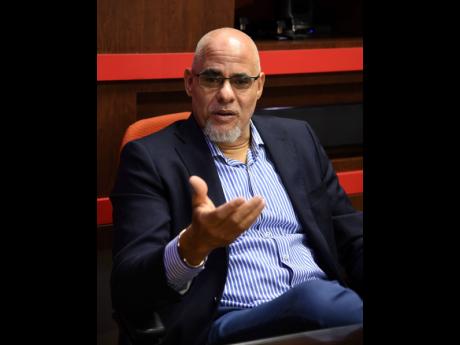Ex-IDB rep rues voluntary vaccines, NIDS amid legacy recall
Outgoing Jamaica Country Representative and Caribbean General Manager of the Inter-American Development Bank (IDB), Therese Turner-Jones, is convinced that Jamaica’s chances of surviving the economic onslaught of the ongoing COVID-19 pandemic are firmly linked to an increased uptake in vaccination among the population.
For her, too, positive transformation of the Jamaican economy and society for the long haul is pinned to an exponential, rather than incremental, rate of digital transformation in both the private and public sectors.
Against that background, she regrets the current slow pace of the take-up of COVID-19 vaccination by Jamaicans, given the absence of inoculation mandates. She predicts, too, that the option to opt out of a national identification card under the National Identification System (NIDS) legislation recently passed in Parliament, may result in a similarly sluggish response by Jamaicans, further delaying the raft of benefits she is convinced a single national ID can unlock.
“I am hoping that when Jamaica rolls out the national ID, it is very successful because, in order to be fully digital, you need a key and that key would be the national ID number that will unlock the kinds of services that the Government will be able to provide in a much more efficient fashion,” Turner-Jones said.
In an interview with The Gleaner, she singled out the digital transformation agenda as being among the highlights of her work in Jamaica and the Caribbean as regional IDB head between 2016 and December 15 this year, when her assignment ended.
“In the public sector, a lot of the ways we interact with governments is still paper-based, face-to-face and inefficient. It’s not that every interaction with government has to be a digital one, but where we see citizens most happy is when they don’t have to deal with face-to-face interaction with the public service; and that says a lot about the nature of much of our public service across the Caribbean. In the same way the private sector needs to have client-focused service, the public service must be citizen-centric. The taxpayers should demand that. The progress has been slow,” according to Turner-Jones.
Turner-Jones has spearheaded negotiations for the development bank when Jamaica received a loan of US$68 million in 2017 to assist with the implementation of the NIDS. She is on record as expressing respect for the decision of the Jamaican Supreme Court, which ruled aspects of the initial NIDS law as being unconstitutional.
“That’s the Government of Jamaica’s decision and prerogative to do that,” she said of the voluntary nature of the compliance requirement included in the final NIDS law.
Turner-Jones’ tenure with the IDB was recently lauded by several private-sector groups, including the Private Sector Organisation of Jamaica (PSOJ), Jamaica Chamber of Commerce, and the Jamaica Manufacturers and Exporters Association. In a recent advertorial published in The Gleaner, the groups described her as a “consummate professional, gifted economist and phenomenal woman who lent her considerable intellect and experience to impact the sustainable economic, social and institutional development of Jamaica”.
“At the PSOJ, we have worked very closely with her to assist and develop micro, small and medium enterprises. All the feedback that I have received from all PSOJ members, and businesspersons generally, who have worked with her is that she really adopted Jamaica,” PSOJ President Keith Duncan said in an interview with The Gleaner.
During her leadership of the IDB’s Jamaica office since May 2013, he said the IDB’s Jamaica country portfolio has been very diverse in its contribution, and expressed confidence that the bank will be able to build on the relationships she forged in Jamaica and the wider Caribbean.
Turner-Jones is particularly proud of the work of the IDB during her tenure to building out the ecosystem for small and medium enterprises (SMEs) and entrepreneurs to be able to flourish.
“This is really important because in some countries, SMEs are really the engine of growth in an economy. They can lead to major breakouts and growth for many corporates. That’s growth that we are looking to promote. Helping government figure out what are the right support systems to put in place to encourage start-ups, first-time entrepreneurs and women-owned businesses is really important,” the former IDB regional head noted.
She also recounted the work done providing loan financing and investment advice through the IDB’s private-sector investment arm, IDB Invest, to major businesses, including The JMMB Group, GraceKennedy, Jamaica Producers and Kingston Wharves, among others.
“There is hardly a sector that is untouched by IDB and IDB Invest footprint. These are all companies with which we have relationships and part of our relationship with these corporates in the region is to help them invest wisely, to do gender-based investments; meaning, looking at what’s the impact of their investments on women and men, and correcting imbalances in gender impact.”
Major public-sector projects were also undertaken in the areas of education, health, sanitation and water supplies and road works, among others, she pointed out.


